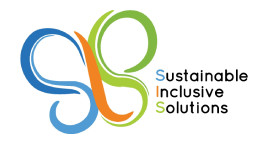Financial sector monitoring, support for the development of Green Taxonomy and integration of climate risks into financial regulation
This project, which has financial and strategic support from the Instituto Clima e Sociedade (iCS), started in July 2022 and will last until march 2024. The executive and technical coordinator is Luciane Moessa, but it has a strong technical team, most of them SIS associates. It has three axes:
Workstream1 – Green/social/sustainable taxonomy
- Analysis of Green/Social/Sustainable Taxonomies in the financial sector, including the most relevant ones being developed, identifying principles that are appropriate to Brazil’s reality to provide recommendations on this regard; participation in key dialogues on the subject, in articulation with Instituto Democracia e Sustentabilidade (IDS), providing technical inputs for legislative and regulatory proposals on the subject – 2nd semester 2022
- Elaboration of recommendations of KPIs for a Green/Social/Sustainable Taxonomy for Brazil, considering the nature of economic activity/technology, location of activity and production chain; sectors must be chosen based on importance to GDP, exports, job creation, and climate and socio-environmental impacts, including the promotion of public consultations/dialogues with stakeholders – 1st semester 2023
- Capacity-building for regulators and financial institutions with the purpose of improving regulations and sector engagement – 2nd semester 2023
Workstream2 – Ranking of the Socio-environmental Performance (including climate) of financial institutions – RASA (Ranking da Atuação Socioambiental in portuguese)
- Development of socio-environmental and climate performance assessment of financial institutions, comprehending commercial and cooperative banks, development banks, insurance companies, pensions and asset managers.
- Results-oriented reporting to enhance the integrity of financial sector commitments and transparency of implementation.
Cycles:
– August and September 2022 – development of the methodology (including public consultation);
– October and November 2022 – data collection of large commercial, investment and cooperative banks (including direct contacts with assessed banks);
– December 2022 – publication of results;
– January to March 2023 – data collection of development banks and funding agencies (including direct contacts with evaluated institutions) and publication of results;
– April to June 2023 – data collection of insurers and asset managers (including direct contacts with assessed institutions) and publication of results;
– July to September 2023 – data collection of open and closed pensions (including direct contact with evaluated institutions) and publication of results;
– October to December 2023 – data collection from commercial, investment and cooperative banks (including direct contacts with banks assessed) and publication of results.
Workstream 3 – Advocacy for a more robust and detailed integration of socio-environmental and climate risks in Brazilian financial regulation
- Comparison of Brazilian financial regulations (banking, capital markets, insurance and pensions) with the regulation of other countries on climate and socio-environmental issues, identifying gaps and possibilities for improvement;
- Elaboration of recommendations for Brazilian financial regulators and dissemination of the studies in online events, press, decision-makers and Climate COPs 27 and 28.
Cycles:
2nd semester 2022 – banking regulation
1st semester 2023 – capital markets regulation
2nd semester 2023 – regulation of insurance, pensions and asset managers
